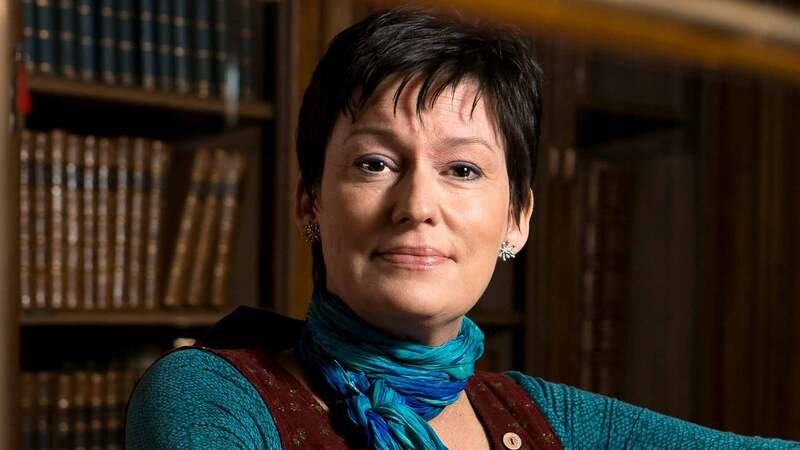You are viewing your 1 free article this month. Login to read more articles.
We need more book prizes
Grumbles about a glut are misplaced; prizes really do make a difference.
"The UK has too many book prizes." That’s a view I recently heard from a publishing professional who expressed the opinion that there are too many book awards doing the same thing, taking up publishers’ time sending out judges’ copies and, for some, paying entry fees or committing to contribute towards the prize’s publicity costs if their novel is shortlisted. Don’t the same, big-name commercial books dominate shortlists anyway?
Looking at the main book prizes, the numbers (apart from the recently announced Caffè Nero awards) are going down, leading some to say that book prizes have had their day. We live in hard financial times, with companies and charities unable or unwilling to commit to prize sponsorship. In 2022 three prizes closed, the Costa awards, Desmond Elliott Prize for Debut Fiction and the Blue Peter children’s books award.
Commenting on those closures in the Financial Times, journalist and author Nilanjana Roy asked: "Are literary prizes really necessary, or just a hangover from the last century?", adding, "The list of writers who were not awarded the Nobel, from Vladimir Nabokov and Jorge Luis Borges to Octavia Butler or Annie Proulx, was as distinguished as the list of the winners." A 2014 Guardian article even reported a study that suggested "winning a prestigious prize in the literary world seems to go hand-in-hand with a particularly sharp reduction in ratings of perceived quality". Apparently, researchers found that readers, attracted by the award publicity to a book that may not be their personal taste, were quick to leave literary prize-winners negative reviews. Not something any author wishes to receive.
Funding problems, great books missing out, increased reader expectations, entry costs for publishers and difficulty in getting media coverage; these are all potential reasons to let book prizes quietly close and not be replaced. However, I think this would be a tragedy for authors. The profession is low-paid and getting the media to notice your book without a big marketing budget is increasingly hard. A cash prize, the publicity that comes with an award, a hopeful uplift in sales and the acclamation of your peers can make all the difference to a struggling writer’s career, and therefore to the diversity of literature available. It’s a feather in the publisher’s cap too.
A cash prize, the publicity that comes with an award, a hopeful uplift in sales and the acclamation of your peers can make all the difference to a struggling writer’s career, and therefore to the diversity of literature available
We need more book awards, not fewer, particularly for non-mainstream books and writers. That is why together with publisher Clare Christian, and the support of the Society of Authors, I founded the ADCI Literary Prize. The award is for an adult novel that contains one or more disabled characters and is written by a disabled and/or chronically ill author. In June the inaugural winner was announced; Nicola Griffith for her lyrical reinterpretation of Arthurian myths, Spear.
The two years of unpaid work from the initial idea to the prize’s launch were a labour of love, fuelled by our passion that disabled and chronically ill authors deserve recognition. Christian said: "I believe that the ADCI Literary Prize is doubly significant as not only does it champion great writing (common to all prizes), but it also highlights and aims to redress the lamentably poor representation of disability in the books we read."
Funding was our main challenge. It costs a lot more than you might think to run a prize. Robyn Law, head of fund-raising, grants and prizes at the SoA, explains the behind-the-scenes costs: "There are the prize administrators … judges … marketing and promotion of the prize, to not only ensure that people know to enter, but to also create a vital buzz around the shortlist and winners which will draw readers to them. There’s postage, packaging, certificates, printing, and all the far less exciting bits and bobs that make a prize work efficiently."
With corporate sponsors and awards bowing out, entrepreneurial authors, passionate about a genre or cause, have stepped up to fill the breach, finding supporters and funding where they can. In 2022 Elle McNicoll created the Adrien Prize for a children’s book with a disabled protagonist; Anna Vaught launched the Curae Prize for writers who are also carers; and Jamie Hale set up the Disabled Poets’ Prize.
All these new founders believe that prizes shouldn’t just be for top selling commercial books from major publishing houses. Awards can introduce readers to literary gems from small publishers, such as Monique Roffey’s The Mermaid of the Black Conch, and celebrate authors from particular social groups or those who write in specific genres that you don’t usually find in a bookshop’s bestseller charts.
Law says that book awards benefit not just writers but the publishing industry as a whole. "Literary prizes not only give an immediate financial boost to those who win them, they also demonstrate the health of the cultural landscape and encourage the publishing industry to continue searching for inspiring voices."
I agree and would also add that one of the ultimate beneficiaries is the reader. Prizes, particularly grassroots ones, champion lesser-known voices as well as showcase great writing; that can only be a good thing for readers who want to discover the very best in their favourite genre or one they have yet to dive in to.



















